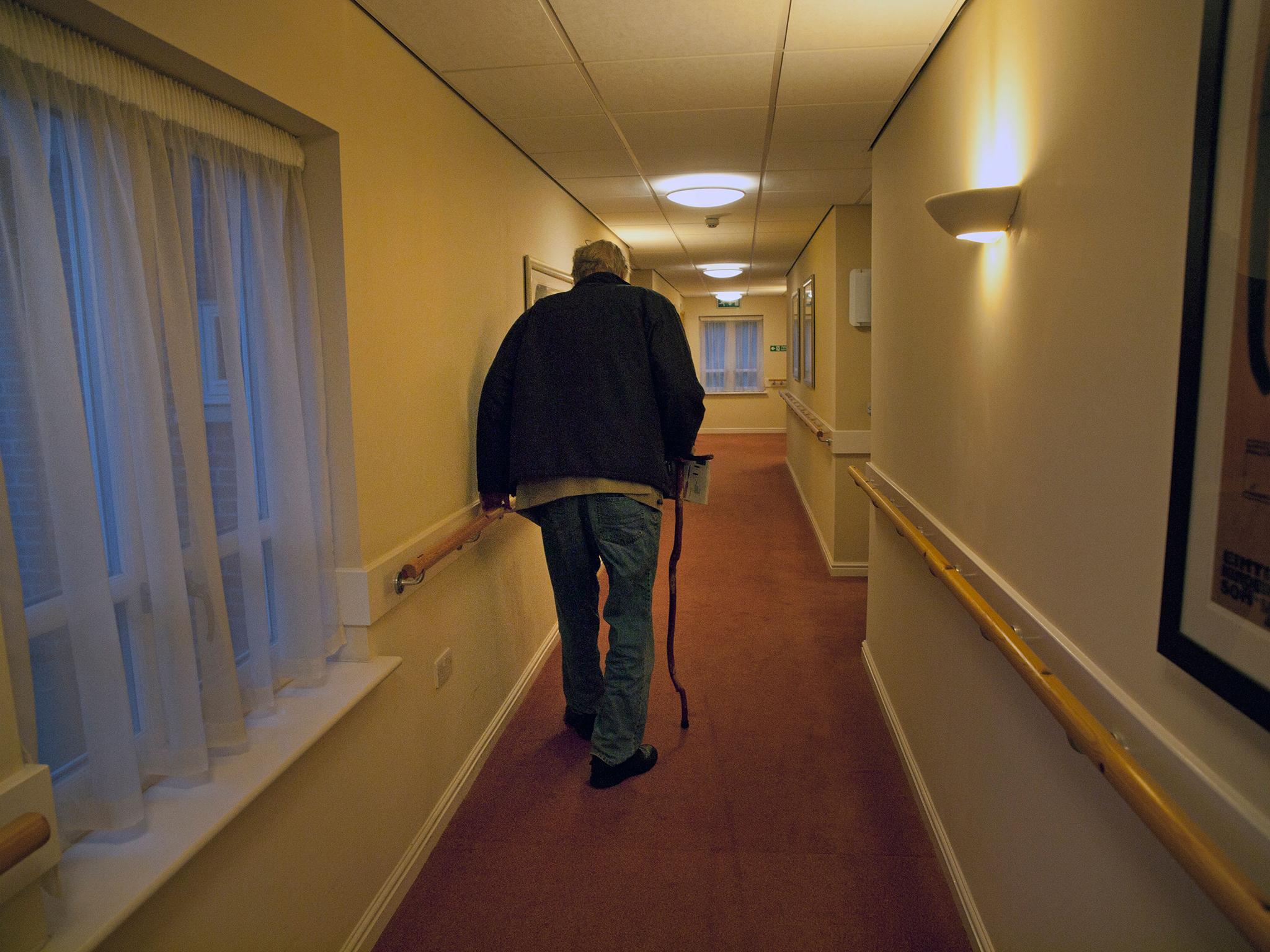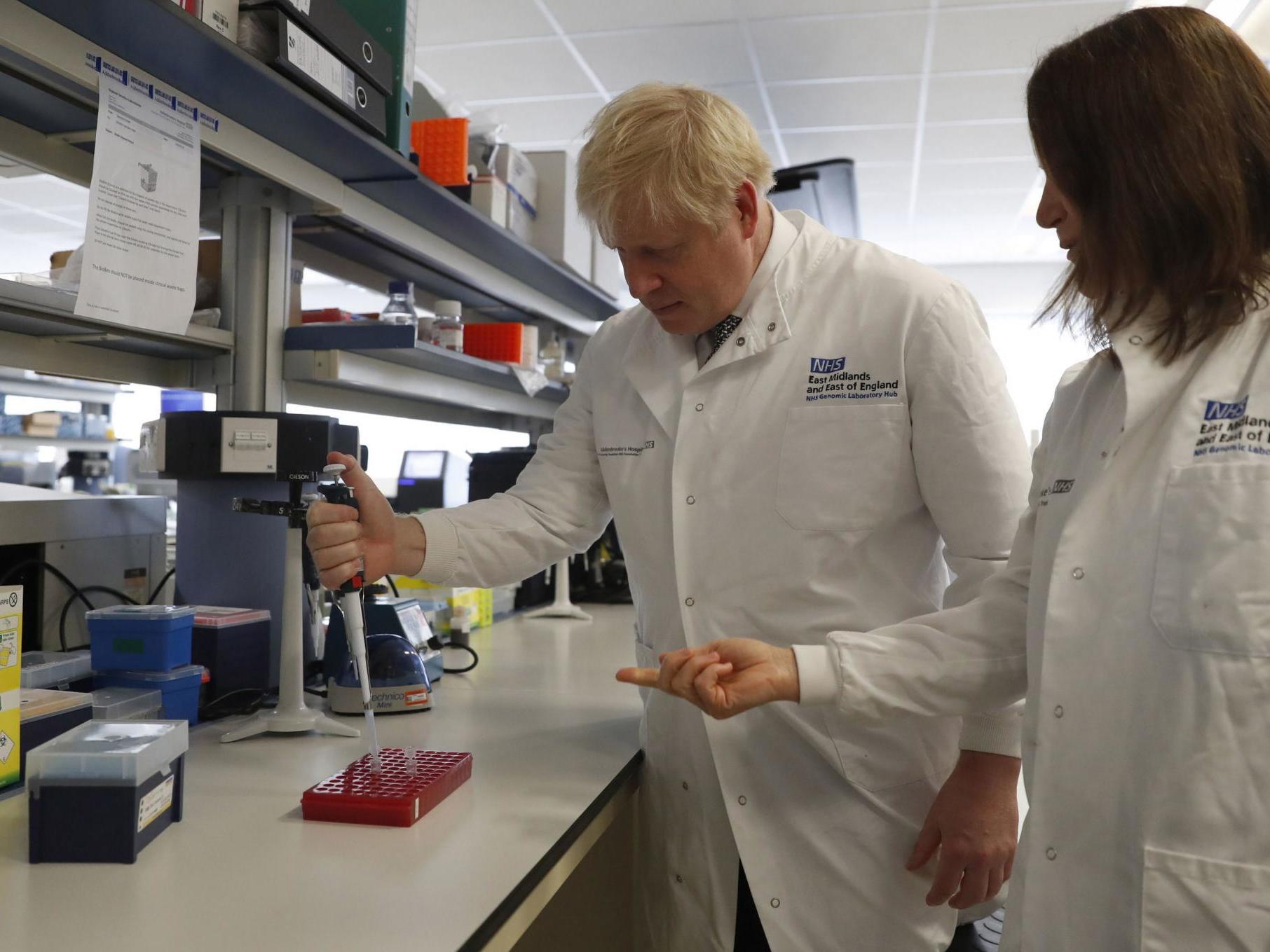Brexit: Care workers demand special treatment as expert panel advises Boris Johnson on future immigration system
Migration Advisory Committee to issue recommendations to Boris Johnson on Australian-style points-based system

Social care providers have warned of a serious blow to the industry if the government cuts off their ability to recruit staff from abroad after Brexit.
The warning came on the eve of the publication of a crucial expert review of Boris Johnson’s plans for an Australian-style system, under which would-be migrants will be admitted on the basis of the UK’s need for their skills and abilities rather than their country of origin.
The prime minister signalled on Monday that individual industries could be given special dispensation to continue recruiting low-skilled labour following his announcement of a “global talent visa” designed to attract scientists, researchers and mathematicians to the UK.
But representatives of the care sector warned that they must be included on the list of protected jobs if the post-Brexit immigration system is not to lead to higher prices, less choice and the closure of homes.
The independent Migration Advisory Committee on Tuesday publishes recommendations on the method for allocating points under the new-style system.
A key decision will be whether to press ahead with the £30,000 minimum salary threshold floated by Theresa May for high-skilled migrants to the UK, which Mr Johnson has signalled that he may drop.
Business groups last week called for it to be slashed or removed altogether in order to avoid cutting off the flow of vital but low-paid workers such as lab technicians, translators and care home managers.
The executive chair of the National Care Association, Nadra Ahmed, told The Independent that a £30,000 minimum salary threshold would “completely disempower social care providers from accessing a workforce from outside the UK”.
“At that salary, a care provider will not be able to afford them,” she said. “There are 122,000 vacancies in the sector at present, and being able to access a workforce from outside the UK is crucial.”
Ms Ahmed added: “We would hope that there is a recognition of the considerable challenges that social care faces and that the sector can be recognised as a special case, as healthcare seems to be.
“Care providers have effectively been subsidising the state for a long time. We are at a watershed moment now where we will see providers leaving the market, at a time when the demographics are clear that we need more care, not less. There are a number of care providers who are on the brink.”
Colin Angel, the policy director at the UK Homecare Association (UKHCA), told The Independent: “At a time of extremely low unemployment in the domestic labour market, social care employers are struggling to recruit enough people from the domestic workforce to meet demand.
“Social care doesn’t always need new entrants to have previous academic qualifications, but it does need people who have the right values and life experience. We need the government to place front-line careworkers on a shortage occupation list, and design a future points-based system which recognises the contribution that careworkers make to UK society, rather than simply qualifications and earnings.”

Mr Johnson has repeatedly said his new immigration system will reduce numbers of low-skilled workers coming to the UK.
And home secretary Priti Patel said at the weekend that the new rules will allow the government to control levels of unskilled migration and encourage businesses to “invest more in the British public” rather than being “reliant on low-skilled and cheap labour from the EU”.
But speaking in London after the launch of the global talent visa on Monday, Mr Johnson acknowledged that the country’s labour shortages were not found only at the higher end of the skills spectrum.
“What we want to have is a system that is responsive to the needs of the UK economy in all its dimensions,” he said. “So, yes, there will be sectors like agriculture or retail, hospitality, whatever, that do need to continue to attract low-skilled workers, but we want to make sure that’s done very much on the basis of jobs they have to come to here in the UK.”
The new rules are expected to be imposed by 2021, two years earlier than promised by Ms May, giving businesses and workers less than a year to prepare for a major overhaul of the immigration system.
Join our commenting forum
Join thought-provoking conversations, follow other Independent readers and see their replies
Comments
Bookmark popover
Removed from bookmarks